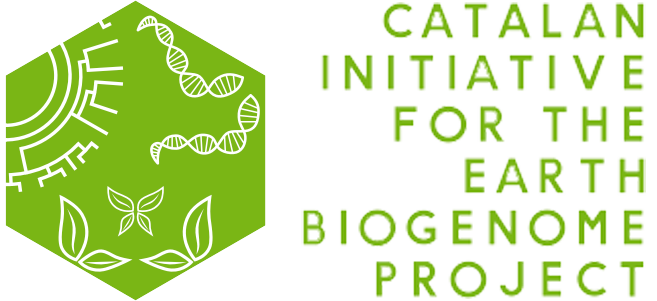The project aims to sequence the genome of eukaryotic species from the Catalan-speaking territories.
The great advances in genome sequencing technology, together with information technology and data processing, currently allow us to pose new challenges for humanity. These powerful tools can be used, for example, to study and understand the Earth’s biodiversity. With this objective, the Earth BioGenome Project was born, a worldwide project that aims to sequence and annotate the genome of all the eukaryotic species on planet Earth (approximately 1.5 million) in 10 years. It is a large-scale project that is defined as a “network of networks”, since it is the umbrella of several projects focused on specific territories or groups of species and involving different institutions and research groups spread throughout the world. An example is the Catalan Initiative for the Earth BioGenome Project (CBP), a project focused on the sequencing of eukaryotic species in Catalan-speaking territories, the scope of action of the Institut d’Estudis Catalans (IEC), which finances the project . In the set of these territories, whose dimensions represent less than 1.5% of the European territory, more than a third of all the current European species are concentrated, which makes this region unique for the study of biodiversity. Within the European framework, the CBP is a project associated with the European Reference Genome Atlas (ERGA), an initiative to produce a genome atlas of Europe’s biodiversity. Within the ERGA network, from the CBP we work in close coordination and collaboration with ERGA Spain.
The information resulting from the CBP will be key to understanding the biodiversity and evolution of our planet, identifying species vulnerable to extinction and providing tools to conserve them, understanding the adaptation of organisms to climate change or predicting and monitoring new diseases. In addition, it will open up a range of new possibilities for the industry, from the food to the energy sector, through pharmaceuticals or cosmetics, promoting the bioeconomy as the main economic model. The bioeconomy is based on replacing fossil fuel-based resources with renewable biological resources to produce food, materials and energy more sustainably. Since the industrial revolution, economic progress has been driven against nature, entailing fatal consequences for biodiversity, but with the birth of the bioeconomy it is intended to pave the way for economic progress that takes nature into account, balancing environmental objectives, social and economic. The emerging technologies of the genome and the knowledge of the genomics of biodiversity will be key to the evolution and application of new industrial models based on the bioeconomy. In this context, the results derived from the CBP will be key to the advancement of the industry in our territory.

In the food sector, for instance, the results derived from the CBP will expand the possibilities of generating new varieties of transgenic products, while allowing the exploration of new food sources. They will also have an impact on the pharmaceutical and cosmetics sector, since they will favor the discovery of new therapeutic molecules, vaccines, pharmaceutical products and those of natural origin. The discovery of new species will provide information on possible alternative forms of energy hitherto unknown, leading to a change also in the energy sector. From the genome of the sequenced organisms, new biomaterials can be discovered or created through genomic engineering and synthetic biology techniques. Thus, CBP will not only be beneficial to industries directly related to genomics, but any industry could potentially benefit, even those that may initially seem unrelated, such as the construction, automobile or textile industries.
These endless possibilities will not be possible without direct collaboration between industry and CBP, and the joint work of scientists and engineers from a broad spectrum of disciplines (genomics, economics, ecology, mathematics, computer science, biotechnology, biomedical engineering, materials, energy, agriculture, etc.), as well as social scientists (ethicists, sociologists, lawyers, etc.). With the aim of promoting these collaborations, last September the CBP presented its project to the Spanish Association of Biocompanies (ASEBIO), making itself available to it and emphasizing its willingness to meet with interested companies.
